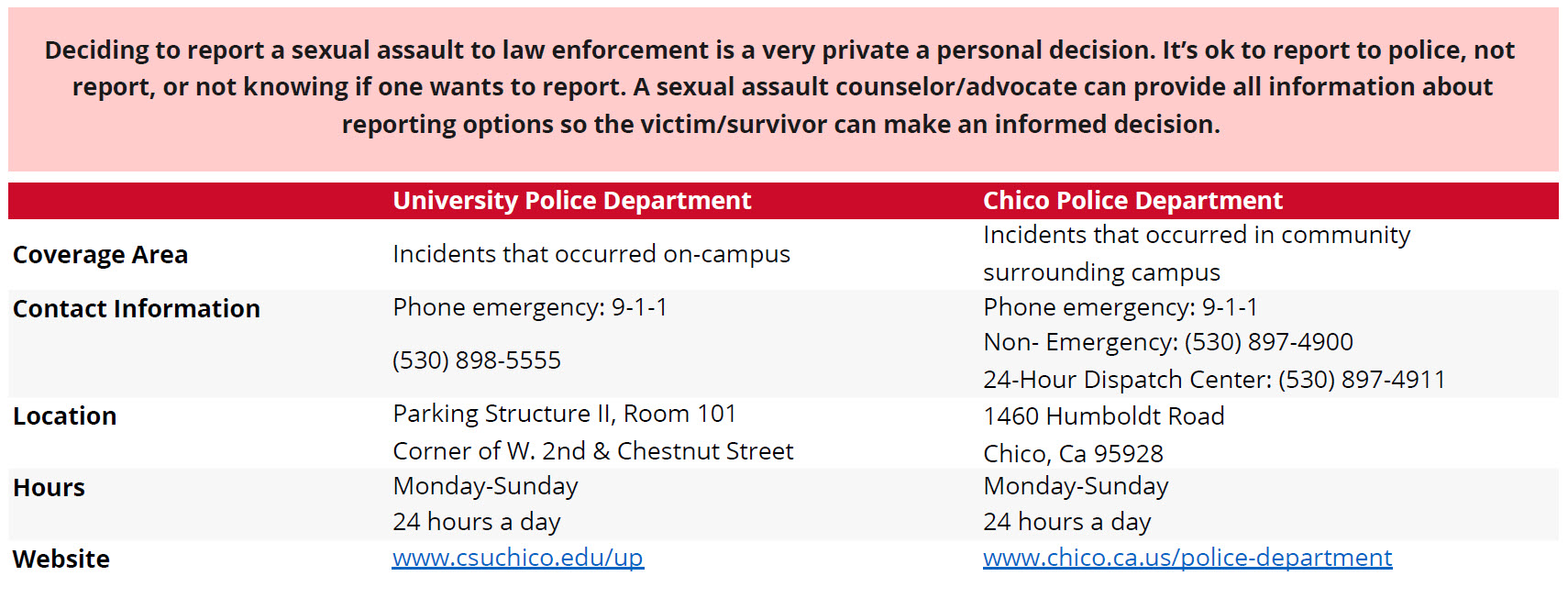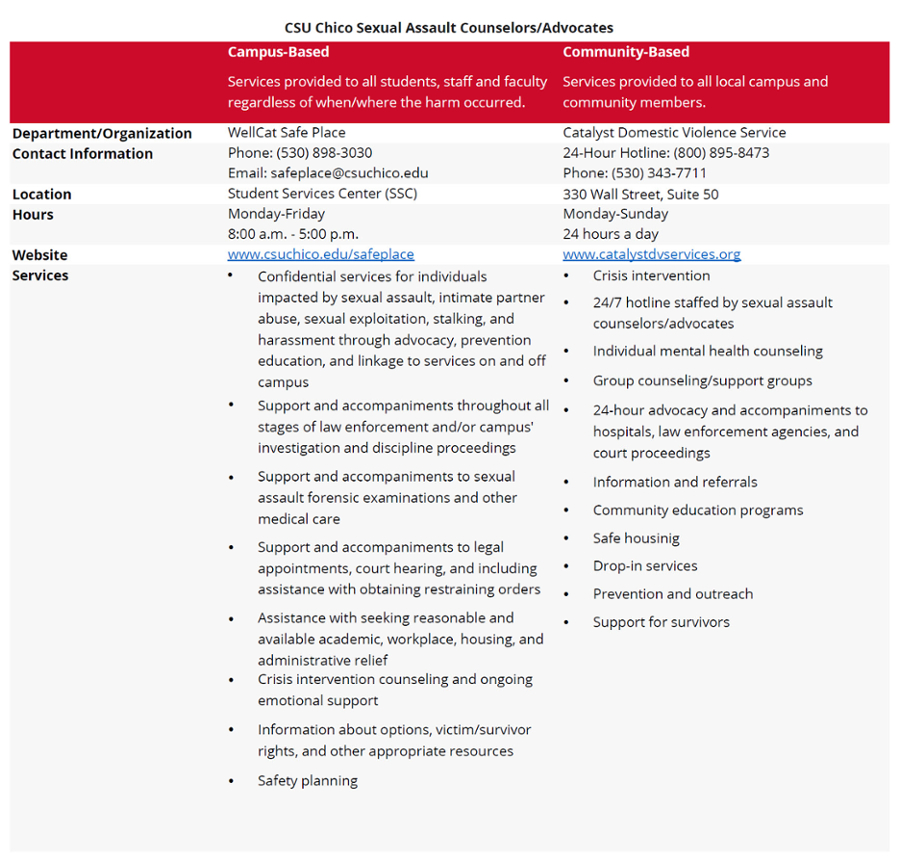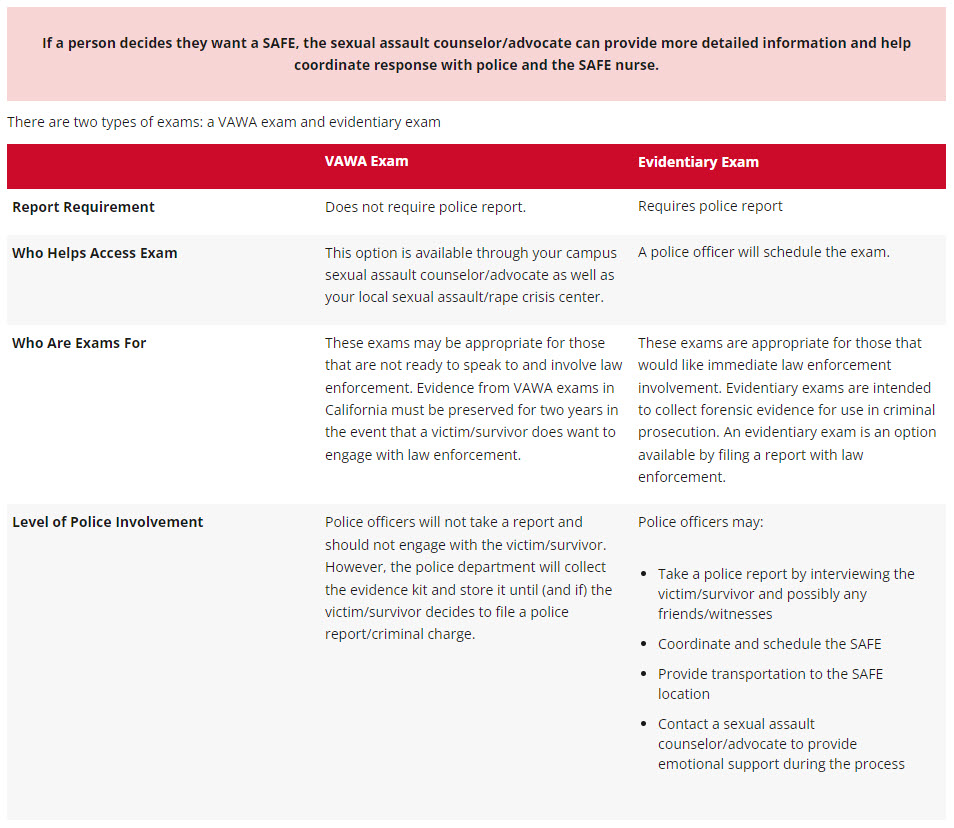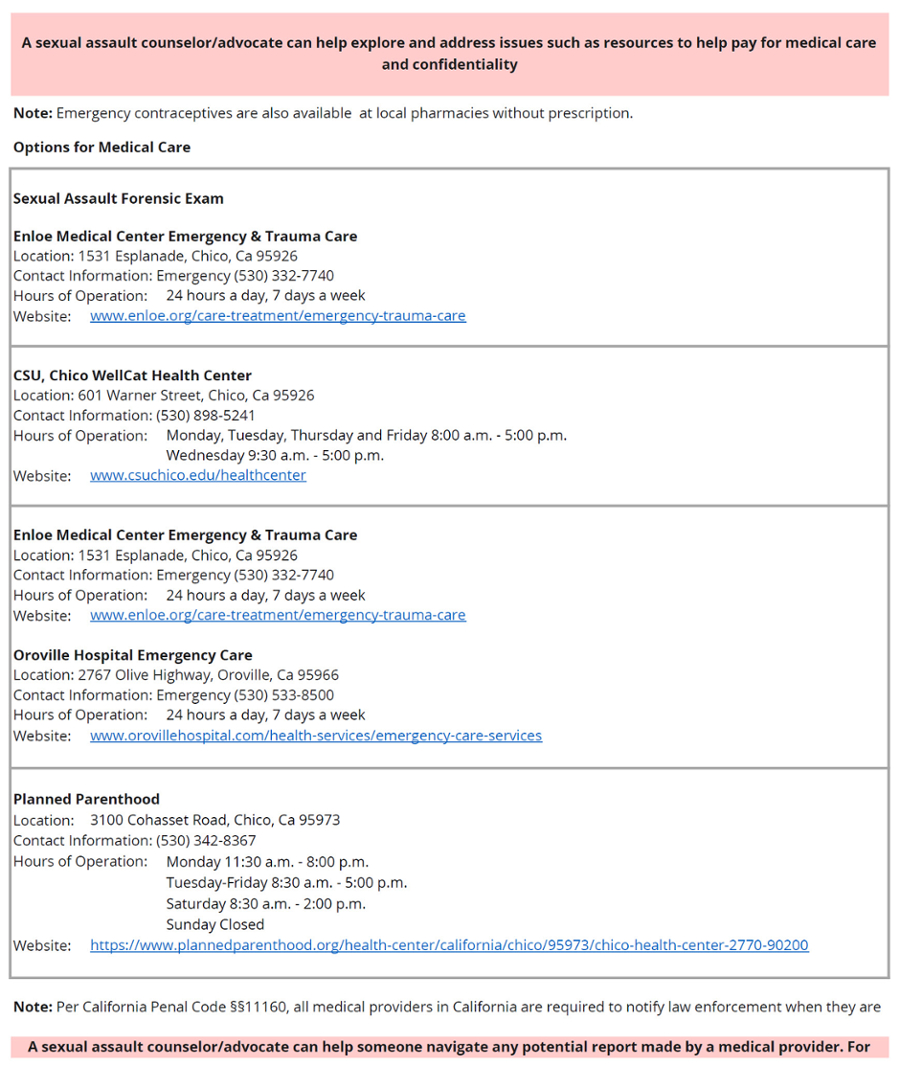Title IX - Preventing Sex Discrimination
About Title IX
Our primary goal is to help people who have experienced harm. If you would like to report sexual harassment, sexual misconduct, sexual exploitation, dating violence, domestic violence, or stalking, you can submit a report below.
If you are in the midst of any kind of emergency, immediate harm or threat of harm
CALL 9-1-1
- Confidential Emotional Support: Sexual Assault Counselors
You Are Not Alone
Sexual assault counselors (also called victim or survivor advocates) are confidential and available to assist victims/survivors of sexual assault.
Note: Communications with sexual assault counselors/advocates are protected by state law per California Evidence Code Section §§1035.
Sexual assault counselors/advocates can assist by providing the following:
- Confidential, non-judgmental support
- Information about rights and options to help someone make an informed decision
- Help with reporting sexual assault to law enforcement which includes in-person accompaniments to the police station (the same support is also available for those that report sexual misconduct to the Title IX office)
- Information and accompaniments to sexual assault forensic exams (SAFE's) and other medical options
Sexual assault counselors/advocates are available on campus and at community-based sexual assault/rape crisis centers.
Note: If a campus-based sexual assault counselor/advocate cannot be reached, you may contact a community-based sexual assault/rape crisis center for immediate assistance. Community-based sexual assault counselors/advocates are available 24 hours a day, 7 days a week, by calling a hotline.
National Sexual Assault Hotline
Hotline staff are available 24 hours a day, 7 days a week via a national sexual assault hotline. Hotline staff can be contacted via phone at (800) 656-4673, or online chat at their website,www.rainn.org(opens in new window).- Please note - when calling the hotline your call will be directed to a local provider based on the area code of the phone number you are calling from. If you are geographically located in an area different than the area code of the phone number you are calling from, hotline staff can still offer you support but may not have information regarding resources in your location. If this is your situation, please call the 24/7 hotline at the sexual assault/rape crisis center nearest you.
Additional Options for Support: Additional resources for support are available and include but are not limited to, mental health counseling and psychological services on-campus or community-based, your campus Title IX office, and the CSU's employee assistance program (EAP) are also available.
- Law Enforcement
A law enforcement officer can take a report, help access confidential support, and provide access to medical care after a sexual assault. Police departments are available for response 24/7.
Sexual assaults can be reported at any time (immediately following, days or years after the incident). Statutes of limitations vary, depending on the type of crime/sexual assault and by state. The evidence available, investigations and treatment options may also be impacted by the length of time that has passed since the assault. A sexual assault counselor/advocate or law enforcement can provide you with specific information related to these factors.

More information about reporting sexual assault to law enforcement:
https://www.rainn.org/articles/reporting-law-enforcement(opens in new window)
https://www.rainn.org/articles/communicating-law-enforcement(opens in new window) - Evidence Collection
Sexual Assault Forensic Exam (SAFE)
(also known as “rape kits")
A sexual assault forensic exam (SAFE) could be used to collect DNA evidence if the assault occurred within 120 hours. Specialized sexual assault nurse examiners collect samples from a victim/survivor that may contain DNA evidence to help a potential prosecution.
A victim/survivor has the right to have a support person with them and can say no to any part of the exam.
Note about at-home rape kits: Although well-intentioned, evidence from at home “rape kits" may not be admissible for evidence.
Preserving clothing with potential DNA evidence:
Necessary evidence could be present in the clothes someone wore during the assault — this evidence can be preserved by being stored in paper bags (mold grows in plastic bags.) If the person decides to file a police report or obtain a sexual assault forensic exam (SAFE), the clothes can be provided to them for evidence collection.More information about sexual assault forensic exams:
https://www.rainn.org/articles/rape-kit - Immediate Medical Care
It's ok if someone does not wish to file a police report or get a sexual assault forensic exam. That said, depending on the nature of the assault, it may still be important to obtain medical care to address potential injuries, exposure to sexually transmitted infections (STI's), or if there may be a risk of pregnancy.
Employees: Not sure how to tell a victim you have to report?
WellCat Safe Place has linked videos and information on their Disclosure Support webpage(opens in new window) that includes do’s and don’ts for friends, faculty, staff, and parents of victims/survivors and the videos “How to Talk About Rape and Sexual Assault, According to Survivors”(opens in new window) and “Things Not to Say to Someone Who Has Been Sexually Assaulted.”(opens in new window)




